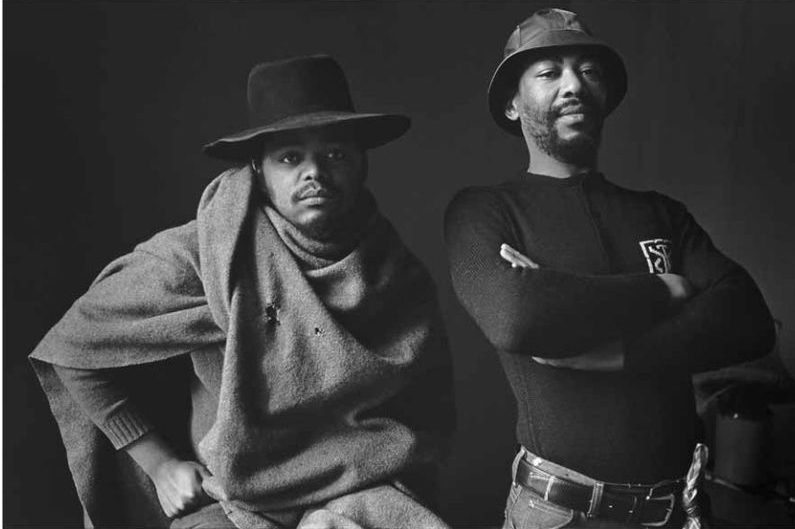Louis Moholo’s Drum
The drummer, Louis Moholo-Moholo, now 72 and the last surviving member of the famed jazz bands The Blue Notes and The Brotherhood of Breath, is still out there performing.

Dumile Feni and Louis Moholo, exiles in London, 1971. Image credit George Hallett via Wikimedia Commons.
On a recent trip to London, I was hoping to catch a performance by Cape Town–born drummer Louis Moholo-Moholo, the last surviving member of the famed jazz bands The Blue Notes and The Brotherhood of Breath. My interest was especially piqued by the release of “Before the Wind Changes,” a live recording of The Blue Notes on tour in Belgium in 1979.
For the uninitiated, The Blue Notes—along with Abdullah Ibrahim and Hugh Masekela—helped define South African jazz on the international stage between 1960 and 1980. The band featured Chris McGregor on piano, Moholo-Moholo on drums, Dudu Pukwana on alto saxophone, and Johnny Dyani on bass. They left South Africa in the early 1960s after being invited to a jazz festival in France and soon became key figures in Britain’s avant-garde jazz scene.
While I continue trying to get my hands on “Before the Wind Changes,” I’ll make do with YouTube videos—like this five-minute clip of Moholo-Moholo (close to the camera on the right) performing with his quintet in London last year.
Then, another sample of Moholo playing is a nine-minute video, filmed at a festival in London in 2010. Moholo (at the back on the left) with Ishmael Wadada Leo Smith and Steve Noble.
Finally, there is an interview Moholo did with musician and composer Neo Muyanga in 2011. It was filmed at the 2011 Pan African Space Station music festival in Cape Town; the festival is the brainchild of Ntone Edjabe and the Chimurenga crew.



















